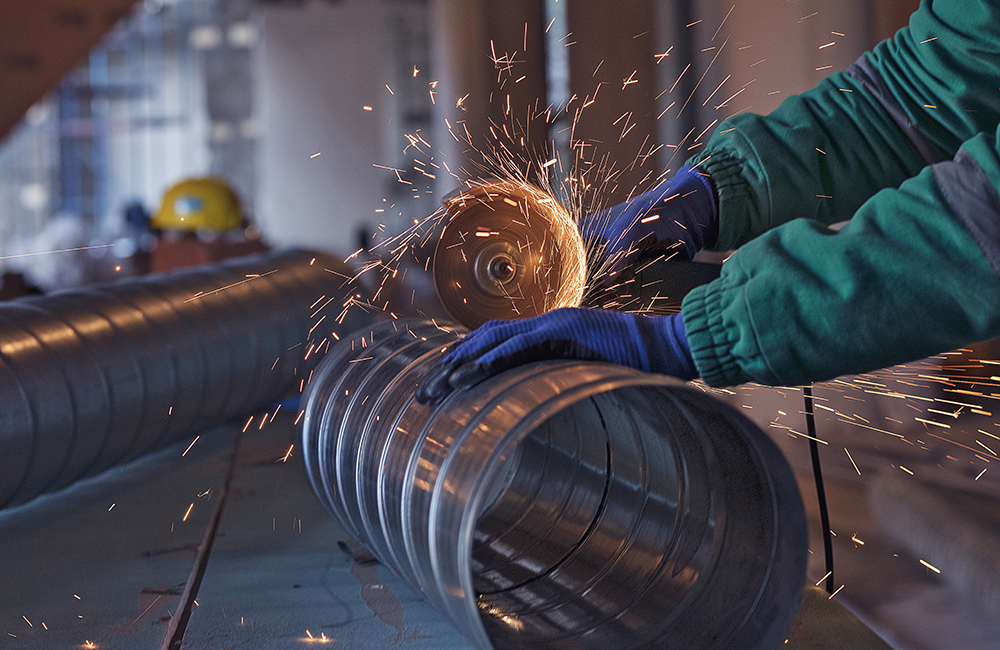
Quality Inspection Service for Mobile Phones
Blog post excerpt [1-2 lines].This text is automatically pulled from your existing blog post.
A Social Compliance Audit, based on international Social Accountability standard SA8000, is a comprehensive evaluation of a company’s activities, practices, and ethical standards with regards to its social responsibility and impact on society.
Home > Services > Factory Audit > Social Compliance Audit
In today’s business landscape, having an ethical supply chain is not merely an optional public relations tactic for companies. Rather, consumers, NGOs, and governments are placing mounting pressure on brands and retailers to guarantee transparency throughout their supply chains. As such, social accountability plays a vital role in a company’s sourcing and marketing strategy, contributing to enhanced product quality, bolstered customer loyalty, and an emphasis on good corporate citizenship.
A Social Complance Audit Audit, also known as a Corporate Social Audit (CSA), Social Audit, or Ethical Audit, or Code of Conduct Audit (COC) is an essential practice to demonstrate a company’s commitment to social responsibility. By conducting a social audit, businesses can evaluate and manage their vendors’ adherence to safe and ethical workplace standards at their factories in China and Asia.
Our professionally certified auditors can conduct social audits according to all major internationally recognized social audits standards, including:
![]() Compliance with labor laws
Compliance with labor laws
![]() Child labor
Child labor
![]() Remuneration and benefits
Remuneration and benefits
![]() Labor practices, including forced labor, disciplinary practices and discrimination.
Labor practices, including forced labor, disciplinary practices and discrimination.
![]() Working hours and wages
Working hours and wages
![]() Worker health and safety
Worker health and safety
![]() Freedom of association and right to bargain
Freedom of association and right to bargain
![]() Harassment or abuse
Harassment or abuse
![]() Environmental protection
Environmental protection
• Garments
• Shoes & Footwear
• Bags & Luggage
• Home Textiles
• Fabric & Yarn
• Fashion Accessories
• Furniture & Home Decors
• Housewares
• Hardware & Hand Tools
• Sports, Fitness & Outdoor
• Toys & Children Products
• Cosmetics & Personal care
• Promotional & Gifts
• Building Materials
• Office & Stationery
• Pet Supplies
• Mobile Phones & Pads
• Home Appliances
• Lighting Fixtures
• E-bike & E-scooters
• Peripheral Accessories
• Power Tools
• Wearable Devices
• Audio & Video
• Camera
• Office Equipment
• Store Fixtures & Supplies
• Industrial Valves
• Machinery & Equipment
• Steel/Alumi Coil & Sheet
• Technical Parts
• Moulds & Precision Tooling
• China
• Bangladesh
• Cambodia
• India
• Indonesia
• Malaysia
• Myanmar
• Pakistan
• Phillipines
• Thailand
• Taiwan, China
• Vietnam
• Turkey
• Poland
• Italy
Need a quote for product inspections, supplier audits, laboratory testing or other supply chain solutions?
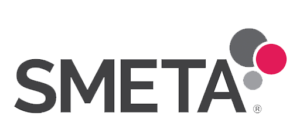
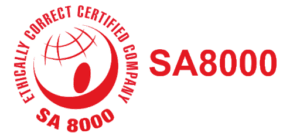
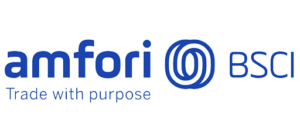
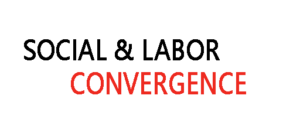
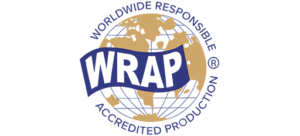
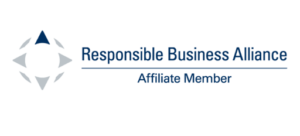
-SA8000® Social Accountability Certification
Demonstrate your commitment to humane working environments. Address any potential ethical breaches in your complex supply chains. It is applicable across all brands regardless of industry, location and scale.
-SMETA (Sedex Members Ethical Trade Audit)
Commit to ethical trade, down to your supply chain. SMETA covers ETI Base Code and additionally reviews performance against key criterion such as management systems implementation, environment, and business ethics.
-amfori BSCI
A key audit for corporate social responsibility, it addresses legal compliance, employee rights, pay and conditions, health & safety, discrimination, child labor and environmental concerns.
-WRAP (Worldwide Responsible Accredited Production)
The world’s largest factory-based certification programme for manufacturers of clothing, footwear and other sewn products to assure safe, legal and ethical manufacturing processes.
-RBA (Responsible Business Alliance)
As the world’s largest corporate social responsibility coalition mainly for the electronics industry, RBA members can be confident that their supply chain adheres to the highest ethical standards for your employees and suppliers alike.
Cost-effectiveness: We are confident that only few companies can offer the same level of quality control solutions at our rates. Costs for inspections in China start at US$180 per man-day.
Solid Experience & Focused Expertise: With 15+ years of experience, we have always focused our business on non-food consumer products. We don’t do food, chemicals or heavy machinery, we do what we are good at.
Fast Response & Service: Questions and inquiries responded by our experts within 24 hours. Reports delivered the next day, draft within the same day upon request!
Flexibility: We try every possible way to meet your special needs, including services requested without advance notice, cancellation up to 5pm the day before with no costs, special report format, overnight work, customized programs and anything possible.
National Coverage: Dedicated inspectors present in 30 cities of China and South Asia to serve you efficiently
Traceability and Credibility: long proven records and 800+ happy customers
> Garment & Textiles Testing
> Toys & Juvenile Products Testing
> Footwear & Leather Testing
> Food Packaging & Container Testing
> Jewelry & Accessories Testing
> Food Testing
> Cosmetics Testing
> PP Sample Evaluation
> Production Sample Collection
> Specification Development
> Factory Visit Companion
> Quality Assurance Consulting & Training
> Technical Documents Translation

Blog post excerpt [1-2 lines].This text is automatically pulled from your existing blog post.

Blog post excerpt [1-2 lines].This text is automatically pulled from your existing blog post.

Blog post excerpt [1-2 lines].This text is automatically pulled from your existing blog post.

Blog post excerpt [1-2 lines].This text is automatically pulled from your existing blog post.
We look forward to providing a complete solution to your supply chain needs with Quality, Value, and Integrity.
Have more questions about our quality control services in China and South Asia?
The quality of production overseas doesn't always meet expectations, which can result in customer rejections or product recalls. Therefore, it's crucial to have someone supervise the production process to prevent defective goods from being shipped. While you could visit the production site yourself, it's expensive and time-consuming. Alternatively, you might consider having the supplier handle quality control, but often the job isn't done professionally, or the supplier is too closely tied to the factory to provide you with unbiased and thorough feedback.
Benefits of third-party quality inspection services
→ Identify issues early on and minimize rework costs down the line. Early detection also helps prevent potential shipping delays.
→ Ensure that the final bulk product quality meets customer expectations.
→ Collaborating with third-party inspection services often cuts down on travel expenses, internal resource allocation, and provides an unbiased evaluation.
With centralized operation center in Fuzhou, China, Veriquality offers efficient and timely quality control services in China & Asia through an extensive QC network.
Now our QC Service covers all main cities in China and other regions in Asia like India, Vietnam, Thailand, India, Pakistan, Bangladesh, Indonesia, Philippines, Malaysia, Cambodia, Myanmar, and Turkey. We can meet with our client’s business demand in China and Asia in a quick, lowest-cost, and professional way.
Our quality control inspections in China & Asia cover industries including apparel, garments, textile, electronics, hard goods, furniture and machinery sectors, etc. You can find more details about our Product Expertise here.
AQL stands for ‘Acceptance Quality Limit’, and is defined in ISO 2859-1 as the “quality level that is the worst tolerable.
It is not economical or time-efficient to inspect 100% of the purchased quantity, unless the quantity is very small. The AQL inspection is a statistically valid representative sampling inspection that has proven to yield similar results to 100% inspections.
There are two essential concepts associated with AQL: sampling plan which determines how many pieces should be randomly inspected from a certain lot; AQL levels which defines how many Critical, Major and Minor defects can be considered as acceptable based on the selected sample size.
What sampling plan and AQL level suits your order?
Sampling plan is normally determined based on the following factors: budget, order value, risk level (e.g. new supplier, new product), shipping window, etc. For consumer products, the MAJORITY of inspections follows General Inspection Level-II.
AQL levels range from 0.065 to 6.5. The larger the AQL level, the more lenient the inspection. For customers with little knowledge, here are mostly commonly used AQLs for reference:
- Critical: 0, Major: 2.5, Minor: 4.0 for inspection of garments, textiles, furniture, houseware, sporting goods, gifts, toys, etc.
- Critical: 0, Major 1.5, Minor 4.0 for inspection of consumer electronics and household appliance, etc. See more detailed explanations in Understanding Sampling Method and AQL in Random Product Inspection
Yes. Veriquality commits to exercising due care and expertise in delivering our services and accepts responsibility where such care and expertise are lacking. You may find more details in quality control our Terms and Conditions, or consult with our account or service staff.
At various stages of production as required, assigned inspectors will visit the factory to randomly select cartons or products based on an agreed sample size and Acceptable Quality Limit (AQL). A thorough inspection will be carried out according to the customer's purchase order, product specifications (tech packs), sample comments, approved samples, and our internal inspection checklist tailored for different product types. Subsequently, a comprehensive report (get our Sample Reports) with detailed illustrations will be provided to customers to help them understand the quality status and make informed decisions.
Different checklists will be applied based on the specific products being inspected. However, a typical inspection, such as garment inspection, will typically include the following areas:
• Production/packing status and quantities verification
• Design construction, color, embroidery and printing conformity against tech packs, PP comments, approved samples
• Workmanship which include symmetry, cleanness, stitching & sewing, fabric fault, inside lining, color effect/consistency, and embroidery & print quality, etc.
• Size measurements, color fastness check, seam strength test, fabric GSM, barcode check, etc.
• Fasteners and accessories check
• Product labeling and marking
• Packing, assortment and shipping marks
• Customers' special attention points
Veriquality has a comprehensive training and management program, which including regular retraining, surprise visits to factories, random interviews with suppliers, full review of inspector reports, and periodic efficiency audits. This has led to the development of a highly skilled team that is considered among the top in the industry.
Our inspectors are compensated above market rates. Besides, strict and proactive measures are taken to minimize instances of bribery.
• A zero-tolerance anti-bribery policy
• Initial and ongoing ethics trainings
• Regular analysis of inspector AQL data
• Incentives for reporting violations
• Unannounced inspection/inspector audits
• Periodic rotation of inspectors
• Open and transparent investigations
![]() Customer provides order details and inspection requirements such as:
Customer provides order details and inspection requirements such as:
• PO/PI or quantity list*
• Supplier and/or factory’s contact*
• Specifications/tech packs
• Approved samples and/or sample comments, if available
• Packaging requirements, if available
• Your special requirements for the inspection, if any
![]() Veriquality make a PI or quote for customer's confirmation
Veriquality make a PI or quote for customer's confirmation
![]() Veriquality coordinates and arranges inspection with supplier/factory
Veriquality coordinates and arranges inspection with supplier/factory
![]() Inspector visits factory for inspection on the scheduled date
Inspector visits factory for inspection on the scheduled date
![]() Detailed and illustrated report sent next business day
Detailed and illustrated report sent next business day
![]() Customer decides on shipment release or rework
Customer decides on shipment release or rework
It will be customers who will make the decision to approve or reject the shipment. Following the inspection, a comprehensive report with detailed illustrations will be provided to you. Reviewing the report will enable you to determine whether to approve or reject the shipment, or request further modifications until quality standards are met. A re-inspection can then be considered with the aim of checking the required changes have actually taken place. It's important to note that a failed inspection report does not automatically render the batch completely unacceptable, as this can depend on various business factors such as pricing, target clientele, contract terms, etc.
For instance, it is not rare that clients provide outdated specifications, which can result in report failures due to discrepancies between the specifications and the actual products. Therefore, we recommend that customers carefully review the report before making a decision.
Take a look at our Sample Reports
As a third-party QC agent, we do not offer any sourcing services. All information shared with us, including names of vendors and factories, is strictly confidential and will not be disclosed to any other party, sold, or used for any purpose other than the quality control service you have engaged us for.
We may help you do some searches without charge and if you have potential factories or suppliers in mind, you may want to consider our Factory Audit services for evaluation before placing an order.
For quality inspections and factory audits in China, our service fee starts at USD190/man-day all inclusive. Product inspections are usually performed within 1 man-day. The number of man-days needed depends on the total ordered quantity, product complexity, number of styles to be inspected and your special requirement on the sample size.
For QC services in India, Bangladesh, Vietnam, Pakistan, Pakistan, Myanmar, Indonesia, Phillipines, Cambodia, our service fee is US$180/man-day plus travel costs ranging from US$20 to US$50 in most cases; for QC services in Turkey, the fee will be US$200/man-day plus travel costs ranging from US$30-100.
We may also provide some volume-based discounts, please CONTACT US directly.
Contact Veriquality to secure your imports from Asia with Product Inspection, Factory Audit and Product Testing services, Click to check our QC Services Coverage.